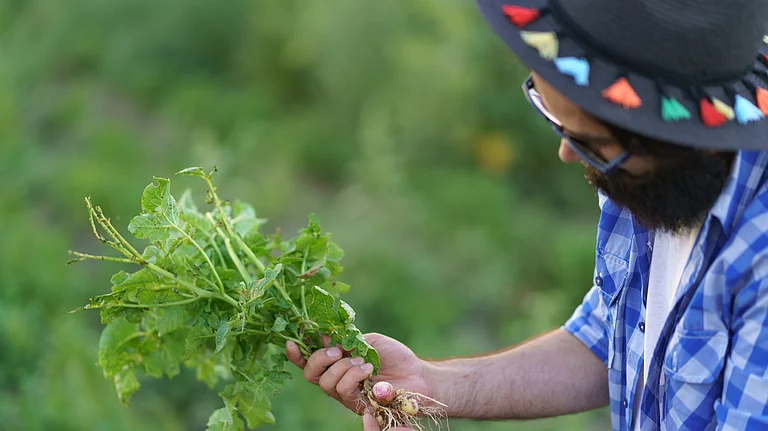Punjab government has sanctioned 15,000 crop residue management (CRM) machines this year, of which farmers procured 12,500.
The state has so far distributed 1.48 lakh CRM machines, including super seeders, happy seeders, mulchers, rotavators, and other equipment.
Agriculture Minister Gurmeet Singh Khudian said a ₹500 crore action plan has been prepared for effective paddy straw management and sustainable farming practices.
The government is conducting village camps to dissuade farmers from stubble burning due to its harmful impact on air quality, soil health, and the environment.
Punjab Govt Sanctions 15,000 Crop Residue Management Machines: Agri Min
The Punjab government is holding camps in villages, asking farmers not to burn paddy straw, citing its detrimental effects on the environment, air quality, and soil health
The Punjab government has sanctioned 15,000 crop residue management machines, out of which paddy growers procured 12,500 such equipment, Agriculture Minister Gurmeet Singh Khudian said on Thursday.
He said the state government is giving crop residue management machinery, which includes a super seeder, happy seeder, mulcher and rotavators, to farmers.
The Punjab government is holding camps in villages, asking farmers not to burn paddy straw, citing its detrimental effects on the environment, air quality, and soil health, he added.
Addressing the media here, Khudian said the government had prepared a Rs 500 crore action plan for the effective management of paddy straw to promote sustainable agricultural practices.
So far, 1.48 lakh crop residue management machines have been distributed to farmers in the state, he noted.
"This year, we have sanctioned 15,000 CRM machines and out of which 12,500 farmers purchased them," said Khudian.
Crop residue management machinery includes super seeder, smart seeder, happy seeder, paddy straw chopper, shredder, mulcher, hydraulic reversible mould board plough and zero till drill.
Khudian pointed out that there was a 70% decline in stubble burning incidents last year.
The state saw a total of 10,909 farm fires in 2024 compared to 36,663 in 2023.
Stubble burning in Punjab and Haryana is often blamed for the rise in air pollution in Delhi after harvesting of the paddy crop in October and November.
As the window for the Rabi crop -- wheat -- is very short after paddy harvest, some farmers set their fields on fire to quickly clear off the crop residue for sowing of the next crop.
The state had recorded 49,922 fire events in 2022, 71,304 in 2021, 76,590 in 2020, 55,210 in 2019 and 50,590 in 2018, with many districts, including Sangrur, Mansa, Bathinda and Amritsar, witnessing a large number of stubble burning incidents.
